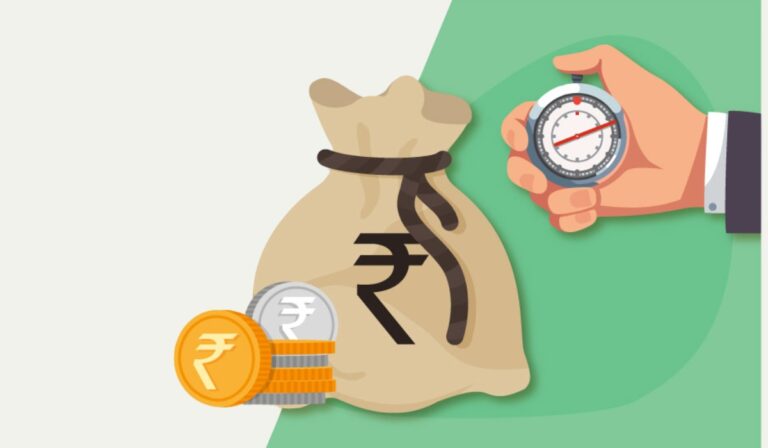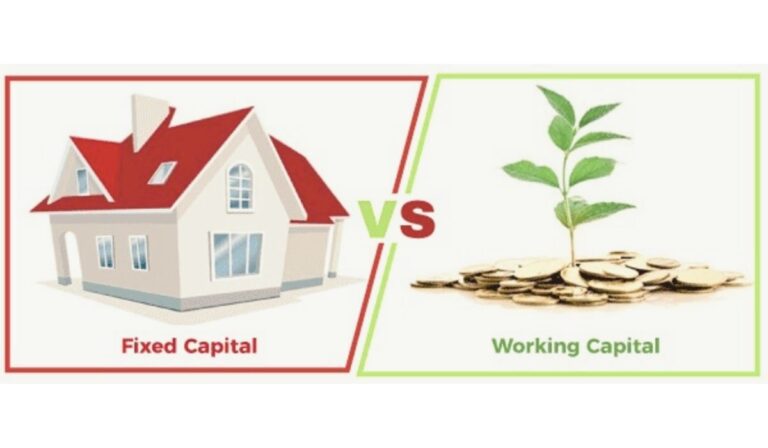A term loan is a type of financial borrowing where the borrower gets a lump-sum amount and repays it in the form of instalments over a predefined period. These loans are important for small businesses as they provide access to the funds for expenses so that the borrower can use the cash flow for other purposes. There are various types of term loans, like short-term, medium-term and long-term loans. Understanding these types of term loans is crucial to finding which suits you best according to your financial needs. Knowing about how term loans work and the various benefits of term loans will help you to make the right decision.
In this blog, we will discuss all the things that are important to know about term loans. We will start with what a term loan is and discover why it is a popular choice for financial borrowing. You will also get to know about various types of term loans, from short-term to long-term loans and what they are used for. We will also explore the key benefits of term loans, like prescheduled repayment plans and competitive interest rates. By the end of this blog, you will have a complete understanding of term loans and whether they are the right solution for you.
What is a Term Loan?
A term loan is a type of financial borrowing in which the borrower gets a lump sum of money which is agreed to be repaid in instalments over a fixed tenure. These loans can be used for personal and business purposes like purchasing assets, expanding business, or meeting other expenses. Term loans are collateral-based loans, which means the borrower has to provide any asset as security to get the loan against it. It is an ideal choice for those who are looking for a reliable funding option with a predefined loan repayment option.
How Does Term Loan Work?
To make an informed financial decision, it is important to understand how the term loans work. Let’s understand it by breaking it into steps:
Determining Eligibility and Loan Amount:
The first step in the loan process is assessing your eligibility. The lender will check various factors such as your income, credit score and your ability to repay. These factors determine if you qualify or not and how much you can borrow. In the case of businesses, additional factors like profitability and debts are also considered.
Fixed Repayment Tenure:
There is a predefined loan tenure in term loans which ranges from a few months to several years. During the repayment period, the borrower has to repay the amount in the form of equal monthly instalments. These fixed instalments help the borrower to do effective financial planning and you can align the repayments according to your income flow.
Collateral Requirement:
Term loans may or may not require collateral. It depends on the loan amount required and the borrower’s eligibility. The collateral-based term loans often come with lower interest rates. However, term loans without collateral come with higher interest rates due to increased risk for the lender.
Understanding Interest Rates:
Term loans are available with both fixed and floating interest rates. If you go for the fixed rate then the amount of instalment remains constant throughout the loan tenure, making the payments predictable. However, if you go for the floating interest rates, then the interest rate will vary with the market conditions. It reduces the cost if rates drop and increases the cost if rates rise. Going for fixed vs floating rates depends upon your financial situation.
Repayment Through EMIs:
Repayment of loans is made simple through monthly EMIs. This EMI includes both the principal and interest amount. The predefined loan repayment schedule makes the management of the loan easier while gradually decreasing the outstanding balance of the loan.
By understanding these aspects of term loans clearly, you will be able to navigate your process of term loans smoothly and choose the correct option according to your financial needs.
Types of Term Loans
Based on their repayment periods, term loans come in different types to cater for the financial needs of the borrowers. Each of these types offers unique benefits according to specific goals:
Short-Term Loans:
Short-term loans (instant loan) are there to help during immediate financial needs. It usually offers a tenure of 12 months but can be extended up to 18 months. This type of loan is ideal for funding small and unexpected expenses while managing the cash flow. The short-term loan benefits include quick easy approval, quick disbursal and a short-term commitment making it an ideal quick financing option.
Intermediate-Term Loans:
Intermediate-term loans or medium-term loans offer a tenure of 1 to 3 years. They are repaid through monthly instalments paid from a company’s cash flow. They are used to finance medium-scale projects like purchasing equipment or business expansion. These loans create a balance between short-term flexibility and long-term commitment. These loans offer structured business-financing options with a manageable repayment schedule.
Long-Term Loans:
Long-term loans come with a tenure ranging from 3 to 25 years. These loans are used for large-scale investments like real estate and infrastructure projects. The company’s assets are used as collateral in this case and monthly or quarterly repayments are required to be scheduled from profit or cash flow. Long-term investment loans can be required to keep aside an amount of profit specifically for loan repayment and also limit other financial commitments the company may want to take on like other debts and dividends.
By understanding the features of each type of loan you will be able to select the right type of loan according to your financial needs, repayment capability and long-term goals. You can ensure a smooth borrowing experience by making the right decision and selecting the loan option that best aligns with your needs.
Benefits of Term Loan
Term loans offer various benefits to the borrowers making them a preferred choice for both personal and business financial needs:
- Predictable EMIs: Term loans provide a predictable repayment schedule which helps the borrower to maintain financial stability and plan a better repayment strategy.
- Customised Loan Solutions: Term loans offer flexibility to customise tenure, loan amount and repayment options according to your financial needs and specific requirements.
- Lower Interest Rates: Term loans come with comparatively lower interest rates than other borrowing options like credit cards and other short-term loan options.
- Diverse Tenure Options: With different types of term loans from short-term to long-term loans, borrower can choose the right option according to their financial needs and cash flow.
- Collateral Benefits: Most lenders offer a higher loan amount at lower interest rates for collateral-based term loans as with added security the risk for the lenders decreases.
By understanding these benefits, borrowers can fulfil their financial needs and achieve their goals conveniently.
Factors Affecting the Eligibility for Term Loans
There are various term loan eligibility factors evaluated by lenders when you apply for a term loan. These factors are evaluated to determine whether you qualify, how much can you borrow and the interest rate:
- Credit Score and Creditworthiness: The credit score of the borrower represents the repayment history and responsibility of the borrower. You need to increase your score to improve your creditworthiness for a loan. It increases the approval chances and also helps to secure better loan terms.
- Income Stability: When you have a stable income, it reflects your ability to repay the loan. In the case of businesses, revenue streams and profitability are the major factors.
- Business Performance: Lenders evaluate a business’s performance, such as cash flow, turnover, and growth potential, to determine its repayment capacity.
- Existing Debts: The lenders assess your debt-to-income ratio to determine whether you can manage additional repayment obligations without any financial stress. Your current debts have an impact on eligibility.
- Collateral Availability: In the case of collateral-based term loans, the value of collateral plays a significant role in deciding the approval, amount and terms of the loan.
When you understand the eligibility criteria of term loans, you can improve your chances of approval of your term loan on better terms and assess the funds to fulfil your financial needs.
Conclusion
A term loan is a reliable loan option as it offers predefined EMIs, flexible terms and lower interest rates to suit your financial needs. Terms loans provide you financial stability whether to fund a personal goal or to expand the business. It provides customised loan solutions which can be tailored according to your financial requirements.
At PayMe, we believe in making financial access simple and effective. Apply for a term loan today and move closer to your dreams without the wait! 👉 Click Here
FAQs
- How is a term loan different from a credit line?
A term loan is a lump sum amount which is repaid in fixed instalments over a pre-decided tenure. Whereas, a credit line is a variable amount of money which you can borrow as and when needed and the interest is charged on the amount utilised.
2. Can I prepay my term loan?
Yes, many lenders allow you to prepay your term loan. But policies related to prepayment vary from lender to lender, some lenders also charge penalties for prepayment. Check the terms of your loan or contact your lender before making the prepayment.
3. How does the loan amount for a term loan get decided?
The loan amount is decided based on factors such as the borrower’s credit score, income stability, and repayment capacity. For businesses, it depends on their revenue and profitability. The loan amount can also depend on the value of collateral if you are going for a collateral-based term loan.
4. What is the difference between fixed and floating interest rates for term loans?
| Aspect | Fixed Interest Rate | Floating Interest Rate |
| Stability | Rate remains constant | The rate varies with the market conditions. |
| Predictability | EMI is consistent and predictable. | EMI amount fluctuates as the rate changes. |
| Suitability | For borrowers who prefer stability. | For borrowers who are comfortable with rate changes. |
5. How can I apply for a term loan with PayMe?
To apply for a term loan with PayMe, navigate to our official website navigate to the Term Loan section, and then follow the below written steps:
-
- Register or Log In
Create an account or log in using your registered credentials. - Fill Out the Application Form
Provide the necessary details, including your personal and financial information. - Submit Your Documents
Upload the required documents such as ID proof, income proof, and address proof for verification. - Select Your Loan Amount and Tenure
Choose the loan amount and repayment tenure that best fits your needs. - Review and Submit
Double-check the details, agree to the terms and conditions, and submit your application. - Get Approval and Disbursement
Once approved, your loan amount will be credited to your account quickly.
- Register or Log In
👉 Apply Now for a Term Loan with PayMe
Take the first step toward financial independence today!
Also, read:
- Difference Between Secured and Unsecured Loans
- Loan Against LIC Policy
- How to Get a Loan Against Fixed Deposit
- What is the Required Minimum CIBIL Score for a Credit Card?
This post is also available in: हिन्दी (Hindi)





